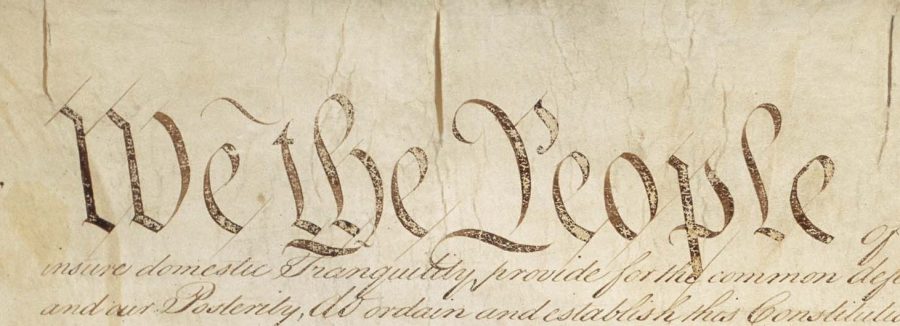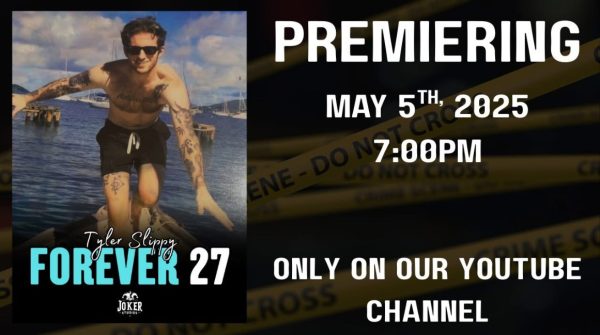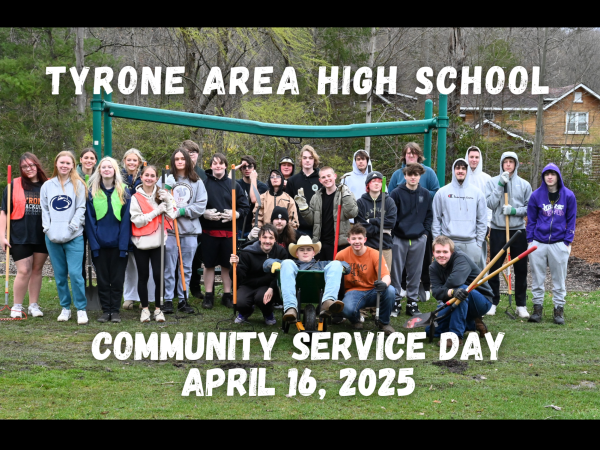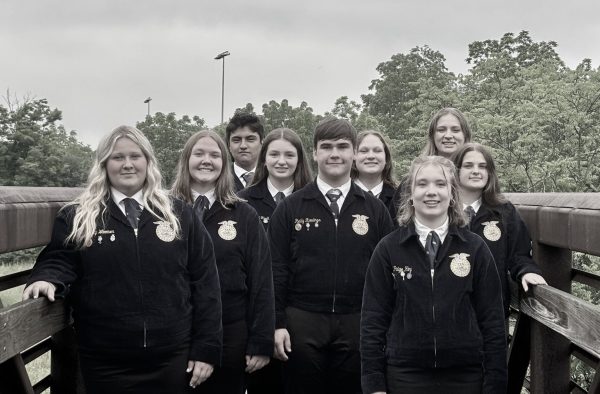New PA Law Tests Students Civic Knowledge
The law goes into effect next school year, but Tyrone High School has already been in compliance with Act 35 for three years
The Tyrone Area School District is already ahead of a new law requiring a civics test, having implemented the requirement three years ago.
A law passed by the Pennsylvania state legislature and signed by Governor Tom Wolf in June 2018 requires that by the 2020-2021 school year all school districts in Pennsylvania must test students in topics related to basic US citizenship, history and government at some point during grades seven through 12.
Representative Karen Boback (Republican – Luzerne County) wrote the bill in response to a recent University of Pennsylvania study that shows only 26% of American adults can name the three branches of U.S. government and more than a third surveyed weren’t even able to name any rights guaranteed by the First Amendment.
The act allows school districts to develop their own local test, or districts can use one developed by the U.S. Citizenship and Immigration Services.
The Tyrone Area School District is ahead of the law, having already implemented this requirement three years ago. Student in US civics at Tyrone High School must take the same US Immigration and Naturalization Citizenship Test that prospective new citizens must pass. The test serves as the student’s midterm exam grade in the course.
Tyrone High School civics teacher Todd Cammarata thinks its a good idea.
“The statistics on the average American’s basic knowledge of civics, government and history are quite poor,” said Cammarata. “If we are going to have an informed voting public, they need to know basic history and facts about the structure of government.”
At the beginning of the year, students in civics at Tyrone High School take the 100-question US Citizenship Test as a pretest.
The citizenship test has two parts. One is the language section where immigrants have to read speak and write in English. The second is the civics, history, geography and government portion. The test has 100 possible questions but most candidates are only given ten. They must answer 6 of the 10 correct (60%) to pass.
However, students at Tyrone are given the entire 100 question test as their exam.
“Sadly, most of the students fail their first attempt at the test, but this gives me a baseline,” said Cammarata, “Then we talk about the test a little bit. Most of the history portion is a review of material already covered in their US history classes. Most of the government topics are covered in civics. Some of the other geography and culture questions are just basic knowledge that most students first saw in elementary school.”
As the students get closer to the midterm, Cammarata provides his students with some other ways to review the material.
“To prepare for the test, we use Quizlet and Kahoot, online quiz apps that have review quizzes for the citizenship test. I also give them the same flashcards that all candidates for citizenship are encouraged to study,” said Cammarata.
But when the students take the test again for the midterm, the vast majority of them pass.
This year in Cammarata’s civics classes, only 6% of the students passed the pretest, but 94% of the students got a passing grade on the midterm, with several students earning a perfect score. Next year, as dictated by the new law, a perfect score will earn students a certificate of achievement from the PA Department of Education.
However, while Cammarata believes that the test is worthwhile, it is not a perfect measure of civic understanding.
“On the downside, [this citizenship test] is purely a memorization based test, so it’s not even close to a perfect assessment of the skills that a good citizen should have,” said Cammarata, “but overall I think it’s a good thing. I think its something every American should probably do.”
Joshua King, another Tyrone social studies teacher, also gave his thoughts on the citizenship test.
“It helps set a certain standard for what students need to know to be informed and engaged citizens. It helped outline the direction of my course and the teaching so pairing the lessons up with the citizenship test helped with my lesson planning,” said King, “I had my students take the citizenship test at the beginning of the year as a pretest and needless to say it wasn’t very well and my hope is at the ending of the year they’ll be able to answer all questions.”
When asked about the test and the requirement to take it, Tyrone senior Emilee Walk thinks it should be required.
“I think it’s a wonderful idea and it has a great chance to help people learn more about our country. It may not be as vital for us but everyone in the U.S citizen or not should have to take it,” said Walk.
King also gives his students another bit of information, that for most of them the test isn’t as stressful as it would be for an immigrant hoping to earn US citizenship.
“I tell my students always to be thankful that they have the luxury where the test isn’t as high stakes. They get to enjoy the luxury of being an American without having to pass the test,” said King.
Can you pass the citizenship test? Click here to take an online practice test.

Hi, I'm Matt Clifton. As of now I am an 11th grader at Tyrone Area High School. This is my first year being a part of the Eagle Eye team. I'm going to...














